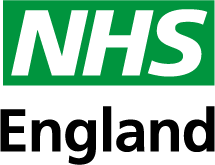The NHS has been leading the way on climate change as the first healthcare system in the world to commit to net zero. In a report published in 2020, the NHS outlined its bold ambition to become net zero for the emissions the NHS controls directly by 2040 and for those that the NHS can influence by 2045.
The NHS accounts for around 4% of all UK emissions so by making step changes to the way healthcare is delivered, for patients, the NHS can continue improving health now and for future generations while reducing its impact on the environment.
There is clear evidence about the health impacts of climate change and air pollution. In the UK, 26,000 to 38,000 deaths each year are attributed to air pollution alone. Climate change is already putting additional pressure to the healthcare services, so it has become urgent to act now to reduce our emissions.
Innovation and technology are playing a key role in supporting achieving the net zero targets and helping address the climate emergency challenge. Innovative products and services can improve patient care and experience whilst maximising productivity and efficiency, addressing healthcare needs and challenges, whilst unambiguously, minimising environmental impact towards a greener healthcare. This might be by preventing unnecessary transportation, reducing single-use plastics, minimising or stopping the emissions from environmentally harmful gases such as desflurane or nitrous oxide, or exploring ways by which energy is consumed everyday to inform future decisions.
The challenge is great but so too is the commitment to support the introduction and wide scale adoption of proven innovations that reduce our carbon footprint and environmental impact.
The SBRI Healthcare programme, an Accelerated Access Collaborative programme funded by NHS England, together with Greener NHS launched two funding competitions to accelerate the transition to greener healthcare in 2021 and 2022. The programme supported innovators in the development of their greener innovations and evidence generation that have the potential to reduce the carbon footprint of existing care pathways.
One of these supported organisations, Revolution-ZERO, is helping trusts move away from single-use surgical gowns, drapes and other surgical textiles and replacing them with durable, washable, highly performant, reusable alternatives and are also looking at novel decontamination and washing processes for the laundry to reduce emissions associated with heating water.
Tom Dawson, from Revolution-ZERO commented: ‘We are currently living in a linear ‘take, make, use and waste’ world. As we move from consumption to resource preservation models within healthcare and other sectors, we inherently move towards more efficient circular models of use, and it requires innovation at multiple levels. We need innovation and lots of it.’
Another company, Apian Ltd, are flying chemotherapy treatments from the pharmacy at Portsmouth Hospitals University NHS Trust directly to St Mary’s Hospital on the Isle of Wight, which dramatically cut delivery time, reduce carbon emissions by lowering associated transportation and enable patients living remotely to access care faster.
Meanwhile Jump, provides a staff engagement platform that supports the healthcare workforce to understand and interact with the Greener NHS agenda. It suggests ideas and initiatives that support staff to make small or large changes in their daily workplace to shift towards greener practises. Staff at University Hospitals Plymouth NHS Trust said that ‘working with Jump over the past year has really pushed our staff behaviour engagement programme to the forefront and has given us the tools to communicate to a wide group of staff. The programme is engaging and fun for our staff to participate in, promoting healthy competition, motivation, and prompting long-life changes’.
Finally, Open Medical cloud-based workflow solution, PathPoint® SurgiCare-Net zero, is helping clinicians to prepare patients for surgery, facilitating sustainable decision-making such as lower carbon anaesthetic choices, and supporting recovery at home. The platform aims to optimise pathway delivery, patient care and experience with a set of patient communication tools and the ability to share pre- and post-operation information, unlocking further efficiency within the pathway and thus reducing CO2 emissions.
The journey towards delivering a greener healthcare will involve a host of innovative approaches and already we’re seeing a buoyant, dynamic and collaborative field of creative innovators, entrepreneurs and researchers developing greener ideas to respond to the climate crisis and reduce the health system’s carbon footprint.
Innovative approaches and concepts that need development, testing, and piloting in real-world settings are being supported by NHS England programmes such as the Small Business Research Initiative (SBRI) Healthcare programme, the Clinical Entrepreneur Programme and, the NHS Innovation Accelerator. In 2022vthe Healthier Futures Action Fund, supported over 50 NHS organisations and teams to develop their greener concepts and deliver quality care while supporting the NHS to reach net zero.
Technology and innovation are key to finding greener solutions for the future. The NHS together with all 1.4 million staff continues to be pioneering by responding to climate change at scale.
Author: Dr Fanny Burrows – Net zero research & innovation Lead, Greener NHS


